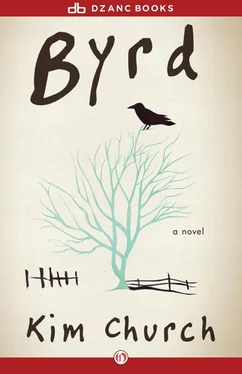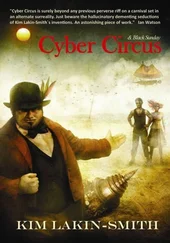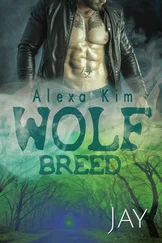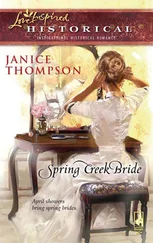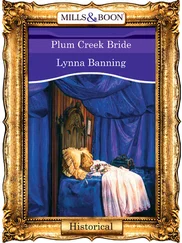He has always been a little afraid of her. She isn’t soft like her mother. She has sharp edges. Sharp green eyes.
One day not long ago he listened in on the extension while she and her mother were talking. “It’s a disease,” Claree was saying.
“Is that what you call it?” Addie said.
They say in the program that you can’t change the past, that your life starts now. But Bryce doubts he can start over with his children. He doubts they will let him. What he needs is a new person, someone who doesn’t know him yet, who doesn’t know enough to be angry or ashamed. A grandchild. Someone who will give him a chance to be good again, to show there is love in him. Because there is, or there’s starting to be. If he can love Irv, he can love anybody.
He drops his cigarette on the sidewalk and grinds it with the toe of his boot. He shoves his hand in his pocket, fingers his new chip. He still can’t believe he’s in a program where they give poker chips as prizes. Or that getting them matters to him. Addie would laugh. She is stepping out from behind the counter, coming toward the window like she knows he’s out here. But he is contained in the shade of the magnolia, safe in the dark.
Invisibly, he waves at her.
He passed his asthma down to his son.
Sam used to get so sick at night he couldn’t lie flat. He would sit up in his bed, rocking and creaking his bedsprings and keeping everyone awake. Claree would give him his Primatene spray; she would rub his back with VapoRub; she’d put VapoRub in the humidifier. But there were nights when nothing worked and they had to take him to the hospital. Bryce always drove. He drove as fast as he could.
In the hospital, the lights were so bright they made a noise, a high-pitched whine like a mosquito. Sam had to sit on a metal table in his spaceship pajamas, wheezing, whee-haw, whee-haw , while they waited for the doctor. “Don’t cry,” Bryce would say. “Crying takes too much breath.”
Winter, and he’s sitting in Addie’s apartment.
She’s out of coffee, she tells him, but she can make hot chocolate.
“Sure,” he says. “Hot chocolate would be good.”
She goes to put the kettle on.
Her rooms have flowered wallpaper and everything smells like mothballs. She is like an old lady, except she is young. Thirty-six, thirty-seven? No children, no husband, no boyfriend, according to Claree. She has lived in this apartment forever, and worked in the bookstore downstairs. Maybe she feels safe here. Maybe, for her, safe is enough.
“I’m glad you came,” she says, setting their mugs on coasters.
“You are?” He looks at her. “Have you cut your hair?”
“No.”
“You look different.”
“So do you.”
They sip their hot chocolates. All her furniture has slipcovers.
She says, “You didn’t drive all the way to Greensboro just to see me.”
“No.” He tells her about his meeting. “I would have dropped by sooner,” he says. She asks about the program. How does it work? What do they do at meetings? What are the steps?
It isn’t her hair, he realizes. It’s her eyes that are different. They aren’t hard when she looks at him. Careful, but not hard.
“What was it like to stop?” she says. “Do you miss it?”
“Sure,” he says. “It’s like giving up anything you love.”
“Oh,” she says. Her voice, too. There’s something new in her voice, something that doesn’t dismiss him. “Where are you now?” she says. “Which step?”
“The fourth. I’m taking a personal inventory. Listing good and bad things about myself. Guess which list is longer.”
She stares at him, almost smiles. “Remember the time you tried to smoke your pencil?”
“My pencil?”
“Your golf pencil. It was in your cigarette pocket and you pulled it out and stuck it in your mouth and told Sam to light it. And got mad when it wouldn’t draw.”
He forces a laugh. In her way she is being kind. This can’t be the worst thing she remembers.
“Did you need help with the good list?” she says.
“That’s not why I came.” He’s a little irritated — with himself or her, he couldn’t say. He finishes his hot chocolate, which is no longer hot.
“You have good taste in clothes,” she says. “You’ve always been a snappy dresser.”
“Thanks.” He’s wearing his navy sweater and brown wool slacks, the zip-up boots.
“You cook. You always made us breakfast on school days — bacon and eggs. Saturdays you grilled chicken. You made your own barbecue sauce.”
He wants to say, Grilling out isn’t something you get credit for .
“You had your picture on a billboard,” she says.
“It embarrassed you.”
“Everything embarrassed me.”
“I’m sorry,” he says.
She shrugs.
“No,” he says. “Listen to me, Addie. I don’t know how to make amends. I’m not that far along yet. But I want you to know I’m sorry.”
“You took us for ice cream on Sundays,” she says.
Sundays had been his sober days. He remembers hot afternoons in the Tastee Freez parking lot, Addie and Sam in the back seat, their sticky cones dripping on the vinyl, Claree with her hot fudge sundae — no nuts — eating with her tiny spoon as slowly as she could, making hers last long after he’d wolfed down his banana split.
“You can stop now,” he says. “This is starting to feel like a eulogy.”
It will happen in the spring. At work, at his gray metal desk. He’ll open his bottom drawer, take out the lunch Claree has packed for him, a meatloaf sandwich with lettuce and mustard, and feel a stab of pain in his shoulder. At first he won’t want to believe what’s happening, but he will know. The body knows. He will reach for the picture on his desk, an old family snapshot Cicero took with his Brownie camera. Blurry — Cicero’s pictures always came out blurry. In the picture they’re on the porch, the four of them: Addie in her puffy dress, Bryce holding Sam in his baby blanket, Claree leaning on Bryce’s arm, looking up at him, her face young and trusting.
The pain will dart into his chest. He won’t be ready, but he will close his eyes anyway and force a quick prayer, Grant me the serenity to accept the things I cannot change , knowing as he prays that there are too many unchangeable things and not enough time to accept them all, even if he had all the time in the world.
“You bought us good shoes,” Addie says. She’s staring at his boots, making him glad he polished them before coming over. “You believed in good shoes.”
Dear Byrd ,
I wish you could know my mother, your grandmother .
When my father died, she insisted on being the one to prepare his body for the viewing. She didn’t think he would trust anyone else. I took her to the funeral home, to a little room in the basement that reeked of formaldehyde despite exhaust fans that roared so hard they made our teeth chatter. My father was laid out on a table in the suit she’d chosen, his charcoal double-breasted, with a gray shirt and pink necktie. His mouth was set in a mostly straight line except for the very corner, which turned up in what looked like the beginning of a smile, like he’d just remembered a joke. My mother took off his glasses, polished them and put them back on. She smoothed makeup over the pink blotches on his face. She combed Grecian Formula into his hair and dabbed cologne behind his ears — Old Spice from the set I’d given him for his birthday. Then she stood back .
“He looks nice, doesn’t he?” she said. “Dignified.”
I tried to see what she saw, another version of my father — young, handsome, hopeful .
My mother came over and slipped her arm around my waist. Her arm weighed nothing. “You know,” she said, “he wanted to be different. We both did.”
Читать дальше
